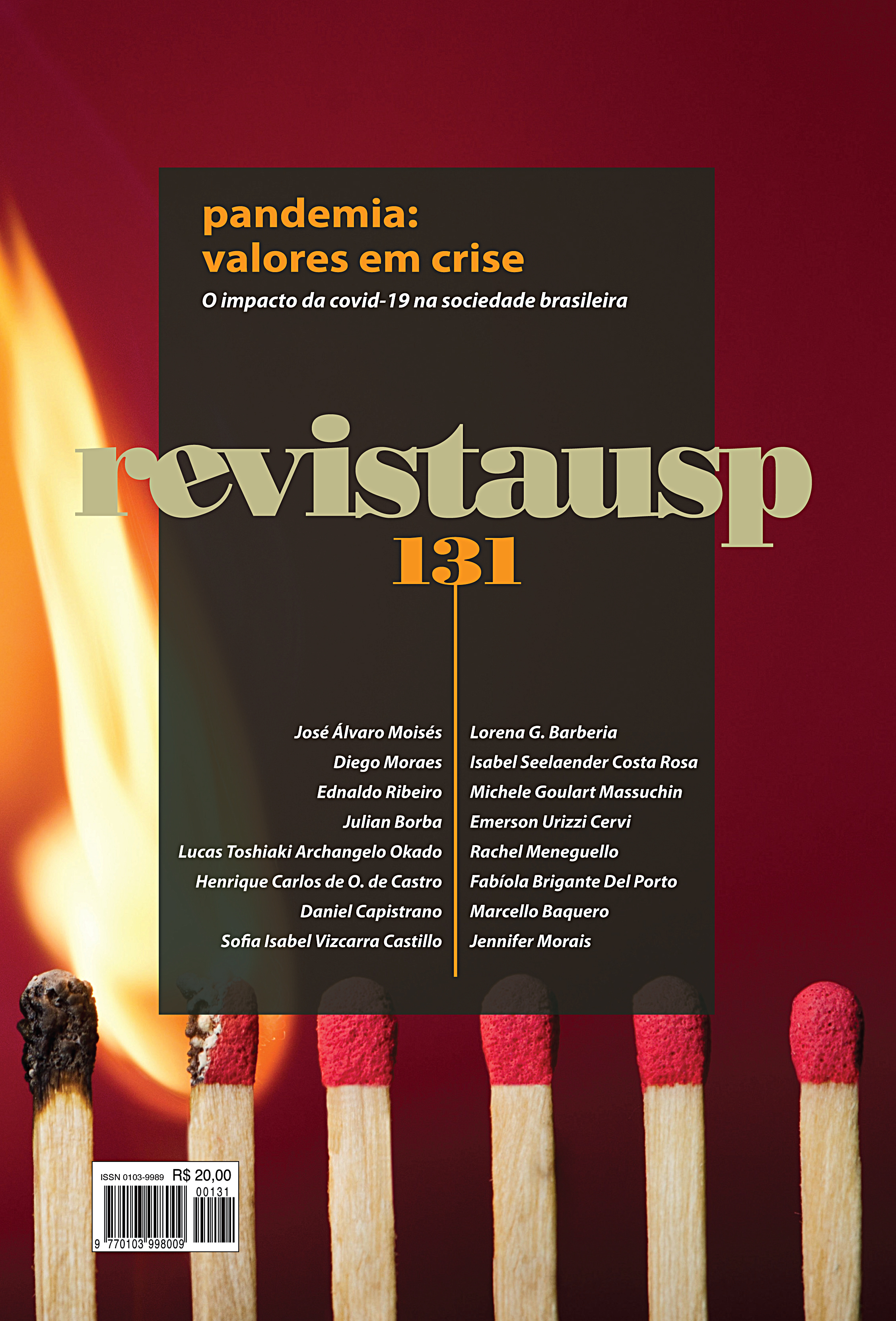Brasil pós-pandemia. Reconstruindo o capital social e uma cultura política assertiva
DOI:
https://doi.org/10.11606/issn.2316-9036.i131p99-120Palavras-chave:
pandemia, democracia, capital social, cultura políticaResumo
A pandemia de covid-19, que há mais de um ano assola o país, onde o governo incumbente tem minimizado o seu impacto devastador, vem afetando os princípios democráticos gerando uma polarização ideológica na sociedade brasileira e produzindo um estado de intolerância exacerbada. A combinação da pandemia com a polarização tem se enraizado e dividido o país, reduzindo os espaços cívicos de envolvimento político cidadão. Este artigo tem por objetivo examinar o impacto da pandemia na construção de capital social institucional negativo (governo- sociedade) e no tipo de cultura política que emergirá no futuro.
Downloads
Downloads
Publicado
Edição
Seção
Licença
Copyright (c) 2021 Revista USP

Este trabalho está licenciado sob uma licença Creative Commons Attribution-NonCommercial-ShareAlike 4.0 International License.
|
Pertence à revista. Uma vez publicado o artigo, os direitos passam a ser da revista, sendo proibida a reprodução e a inclusão de trechos sem a permissão do editor. |


